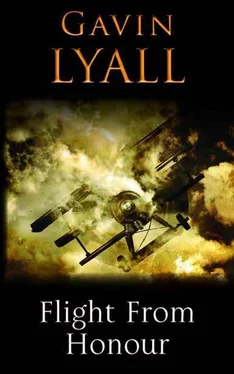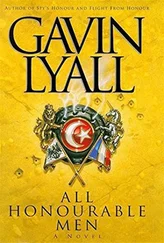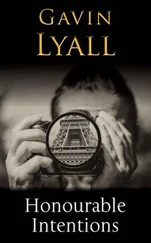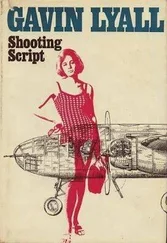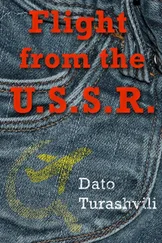Gavin Lyall - Flight From Honour
Здесь есть возможность читать онлайн «Gavin Lyall - Flight From Honour» весь текст электронной книги совершенно бесплатно (целиком полную версию без сокращений). В некоторых случаях можно слушать аудио, скачать через торрент в формате fb2 и присутствует краткое содержание. Год выпуска: 2013, Издательство: PFD Books, Жанр: Шпионский детектив, Исторический детектив, на английском языке. Описание произведения, (предисловие) а так же отзывы посетителей доступны на портале библиотеки ЛибКат.
- Название:Flight From Honour
- Автор:
- Издательство:PFD Books
- Жанр:
- Год:2013
- ISBN:нет данных
- Рейтинг книги:4 / 5. Голосов: 1
-
Избранное:Добавить в избранное
- Отзывы:
-
Ваша оценка:
- 80
- 1
- 2
- 3
- 4
- 5
Flight From Honour: краткое содержание, описание и аннотация
Предлагаем к чтению аннотацию, описание, краткое содержание или предисловие (зависит от того, что написал сам автор книги «Flight From Honour»). Если вы не нашли необходимую информацию о книге — напишите в комментариях, мы постараемся отыскать её.
Flight From Honour — читать онлайн бесплатно полную книгу (весь текст) целиком
Ниже представлен текст книги, разбитый по страницам. Система сохранения места последней прочитанной страницы, позволяет с удобством читать онлайн бесплатно книгу «Flight From Honour», без необходимости каждый раз заново искать на чём Вы остановились. Поставьте закладку, и сможете в любой момент перейти на страницу, на которой закончили чтение.
Интервал:
Закладка:
Then the aeroplane writhed and something big twisted off: the whole engine and propeller. Unbalanced, the aeroplane reared on its tail. “ Madre di Dio! ” Falcone whispered.
Then, delayed by distance, they heard the engine backfire, buzz for a moment, and cut out. The aeroplane flopped forward and immediately reared again, twisted, and the pilot fell out. The tiny figure fell, arms and legs flailing, with a horrible purposefulness that the fluttering, prancing aeroplane lacked. Then they heard his scream.
It went on long after he had hit the ground in a puff of dust. It ended as the aeroplane struck, turning from a shape into a heap in a bigger cloud of dust. They heard that crash, and then it was over. No fire, just the drifting dust and running men.
“I don’t think me pistol’d have saved ye from that,” O’Gilroy observed.
Back at the Grand Hotel, O’Gilroy watched as Falcone undid the wrapped box. Inside, resting on crumpled newspaper, lay a single white lily. And a crudely drawn picture of a gun, a dagger and a bottle marked veleno .
Falcone had gone stiff and pale, but also perplexed.
“What’s it mean?” O’Gilroy asked.
“The Ujedinjenje ili Smrt . . . It is a secret society of Serbia . . . But I not understand Serbia . . . Why do they want to kill me?”
O’Gilroy didn’t know, either, but was content that Falcone now believed somebody really did. It made it easier to keep him alive. “So what’s yer plans now?”
Falcone came co a firm decision. “I want to go to England. Will you come also?”
“Sure, I’m due back. I’ll-”
“The hotel will get us tickets on the boat for tonight.”
“No. Give me some money and I’ll get the tickets. Ye stick here and pack. Have ye got a gun of yer own?”
Falcone found it in his overcoat pocket: it was identical to O’Gilroy’s own, a Belgian-made Browning automatic.
“Fine. Shoot anyone who comes in. Except me.”
4
Perhaps quite unintentionally, the September sun stared brightly in through the southern windows of the Secret Service Bureau. However, it was only half past ten in the morning and the Bureau was, after all, a Government office, so as yet there was hardly anyone there to notice the indiscretion. Captain Matthew Ranklin, Royal Artillery, was one of the few, but he was shuffling papers in an office on the far side of their set of attic-shaped rooms and his window faced west to the roof of the new War Office building.
Major Dagner came in. It was only his second day in the office and he still wore uniform, which Ranklin had hinted wasn’t strictly necessary in the Secret Service. Dagner had thanked him politely but pointed out that, living so near the War Office, it virtually counted as a disguise. The uniform was Indian Army, a Gurkha regiment, and had the DSO heading a row of campaign ribbons. He put his cap and stick on a table and tossed his gloves into the cap. “Is the Chief in?”
Ranklin nodded towards the sound-proofed inner door. “He’s still saying his goodbyes to the stenographers.”
The Commander (Ranklin flatly refused to call him ‘Chief’, that was a stoker’s rank) was going on holiday, much delayed whilst he waited for Dagner’s arrival. At least, he called it a ‘holiday’ but what it involved was letting his moustache grow, kitting himself out with a high-buttoned green hunting jacket, Tyrolean hat, a swordstick, and booking a ticket for Bavaria. Most of the Bureau seemed to think this was absolutely wonderful, particularly since the old boy spoke so little German. Ranklin thought it was monumentally childish.
But there was a lot of the child left in the Commander. And Ranklin had begun to see the value of his stubbornness and wilfulness when it came to protecting the young Bureau from more carnivorous Government departments.
Anyway, once the Commander had gone, there might be a chance to get the place organised. Right now, he was browsing through the annual Confidential Reports of the four young officers who had just joined them. He opened a new one and lit his pipe.
“Nice day again,” Dagner said, staring down into the street. “I still can’t grasp how much London’s changed. All these new buildings; Whitehall’s being completely taken over by Government offices – and motor-cars. London used to smell like a stable-yard; now it stinks like an engine-room. All in ten years.”
Ranklin raised his eyebrows. “You must have been home on leave at some time in that long?”
“I’m afraid I haven’t got a home in England,” Dagner corrected gently. “And not even any close relatives here by now.”
Ranklin scowled inwardly at having forgotten that the Indian Army officers did tend to belong in India. Or thought they did. Dagner had made his name (secretly, that is) playing the “Great Game”, probably disguised as a tribesman on the North-West Frontier, and he looked very much the part. As, of course, he would have had to: lean, dark-haired, a hawk face still bronzed by the sun or the last coating of walnut juice or whatever they used. Now he had come to be the Commander’s deputy and pass on his expertise to the new Bureau and its crew of enthusiastic but as yet mostly amateur agents. Or, as Ranklin preferred to put it, spies.
Dagner turned from the window. “The Chief was saying yesterday that, in the interests of secrecy, he felt I should be known as Major X.” He might have been slightly embarrassed, but it was difficult to tell with that controlled face. He hurried on: “And, by the same token, you should be Captain Y.”
Ranklin frowned. “I’m not sure that I want to be Captain Why?”
“Ah. Yes indeed. Then I suggest you take to signing papers Captain R and present him with a fait accompli when he gets back. Is that the training programme?”
“No, just the new chaps’ CR’s. I’ll get down to the programme once he’s gone.”
Dagner smiled as sympathetically as his face allowed. “We must have a chat about our new boys . . . How did you get landed with the training?”
“I complained once too often about how little I’d been taught myself, and the Commander said Fine, you’re in charge of drawing up a programme, then.”
“The old Army game. Have you done this sort of thing before?”
“I did my three years as adjutant.”
“Splendid,” Dagner murmured. “May I ask what the programme will comprise?”
Ranklin tried not to look rueful. “I don’t think we can give them more than a light dusting of practical skills: following people and spotting if you’re being followed, lock-picking and so forth.”
“And its real aim?”
Ranklin acknowledged this with a nod; a proper training programme should have an ulterior purpose. “To teach them not to be Army officers – which they’ve been learning to be ever since they left school.” And seeing the frown starting on Dagner’s face, added quickly: “Europe’s a civilian society.”
“Yes. Yes, of course. I must get used to that. And nothing we teach them can be as valuable as experience, but . . .” Then, as if wanting to get something off his chest but unsure about whether or not it was a Shameful Episode: “I dined with Sir Aylmer Corbin of the Foreign Office last night. Do you know him?”
“Met him.” Ranklin quietly began to fill his pipe, watching Dagner’s face. Behind its control, he thought he recognised the look on the faces of men coming out of their first battle: sheer disbelief that the world could be like that.
“I just can’t accept that I heard what I think I was told. That while I’m in command here, I’m expected to do nothing. Nothing. That the Chief’s great failing was that he would send people to places and do things, and that I was expected to redress the balance . . . Just whose side are those people on?”
Читать дальшеИнтервал:
Закладка:
Похожие книги на «Flight From Honour»
Представляем Вашему вниманию похожие книги на «Flight From Honour» списком для выбора. Мы отобрали схожую по названию и смыслу литературу в надежде предоставить читателям больше вариантов отыскать новые, интересные, ещё непрочитанные произведения.
Обсуждение, отзывы о книге «Flight From Honour» и просто собственные мнения читателей. Оставьте ваши комментарии, напишите, что Вы думаете о произведении, его смысле или главных героях. Укажите что конкретно понравилось, а что нет, и почему Вы так считаете.
